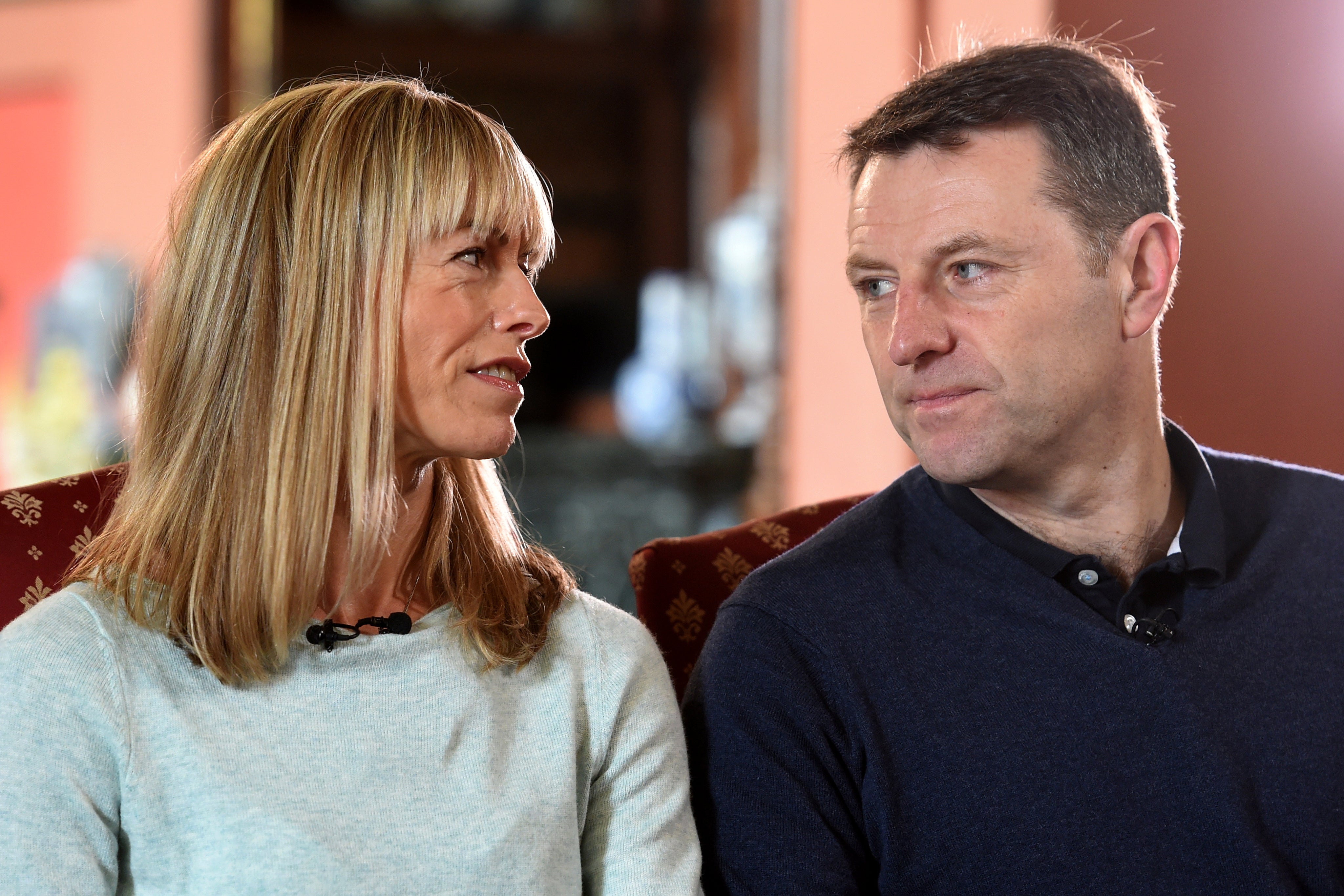
Four victims of “serious media intrusion” have lost a High Court battle against the Government over its decision to cancel the second part of the Leveson Inquiry, with a judge saying the case failed “at almost every level”.
Christopher Jefferies, Kate and Gerry McCann (pictured) and Jacqui Hames brought a judicial review in a bid to force the Government to reconsider.
But their case was rejected today by Lord Justice Davis and Mr Justice Ouseley.
Lord Justice Davis said: “I have… a great deal of sympathy for the claimants.
“I can readily understand their bitter disappointment at what has eventuated.
“But I am afraid that sympathy cannot override the law, and I can see absolutely no basis for these grounds of claim… achieving the result which the claimants seek.”
The second part of the inquiry was due to look into unlawful conduct within media organisations as well as relations between police and the press.
The decision was taken jointly by Hancock and then Home Secretary Amber Rudd.
At a hearing earlier this month, the four argued David Cameron made a “clear and unambiguous commitment” when Prime Minister that Leveson Two would go ahead.
Their lawyers said that commitment, made at a meeting with Jefferies, Mrs McCann and Hames in November 2012, meant they had a “legitimate expectation” it would proceed.
But Lord Justice Davis said Cameron made “no such promise” in the meeting.
The judge also said he found it “unacceptable” that the case was based on a covert recording made of the meeting, despite everyone present having agreed that “what is said in this room stays in this room” at the outset.
He said the case failed “at almost every level”.
The Department for Digital, Culture, Media and Sport welcomed today’s judgement.
A spokesperson said: “The Government remains committed to ensuring that the inexcusable practices that led to the Leveson Inquiry never happen again.
“The media landscape has changed significantly in the six years since the Leveson Inquiry was first published and we believe that the steps we have taken mean that continuing with Part Two is no longer appropriate, proportionate, or in the public interest.”
The News Media Association also said the decision was “most welcome”, adding: “The news media industry is grappling with the challenges of providing sustainable high quality journalism in the digital era and the spectre of a sweeping inquiry and punitive legislation have been an unwelcome distraction from this.”
Bristol landlord Jefferies, who was libelled by the press when he was wrongly accused of the murder of Joanna Yeates in 2010, told the Leveson Inquiry he was “vilified” by the media.
The McCanns complained of press intrusion into their lives after their daughter Madeleine went missing on holiday in Portugal in 2007.
Former detective and Crimewatch presenter Hames received apologies and damages from News Group Newspapers, part of News UK, and Trinity Mirror over phone hacking and other illegal activity.
Speaking after Hancock’s decision to cancel Leveson Two, Hames said the Conservatives had broken a promise by Cameron to finish the inquiry and she had “no confidence” in the Government.
Today, Hames said she and other victims of press abuse “will continue to campaign and pursue every avenue to obtain the justice we were promised, and to see the completion of the Leveson Inquiry”.
“The Government may have met its narrow legal obligations in how it cancelled the inquiry, but it cannot hide behind today’s ruling to justify its decision to do so as reasonable, proportionate or in the public interest.”
Hames added: “How can the public trust the promises made by a Prime Minister again?”
Conservative peer and former party chair Baroness Warsi lent the claimants her support, saying: “The daily torrent of religious bigotry in the press urgently needs to be addressed, and the completion of the Leveson Inquiry with extended terms of reference to investigate rising press Islamophobia would have been the best way to achieve that.”
Sir Brian Leveson heard the first part of the inquiry, which cost the taxpayer £5.4m, over 17 months and delivered his report in 2012.
In a letter to Rudd dated 23 January, Sir Brian said he believed the bulk of the inquiry’s scope should go ahead.
Announcing the original inquiry in 2011 in response to a wave of public anger over alleged phone-hacking by the now-defunct News Of The World, Cameron said it would be divided into two parts.
Hancock said in March there had been “significant progress” in the practices of the press and the police, including the creation of the new Independent Press Standards Organisation since Sir Brian’s report.
He added that the media landscape of today was “markedly different” from the one examined by Leveson in 2011 and that the press was now “under threat” from new forces that require “urgent attention”.
Picture: Reuters/Joe Giddens/Pool TPX
Email pged@pressgazette.co.uk to point out mistakes, provide story tips or send in a letter for publication on our "Letters Page" blog
